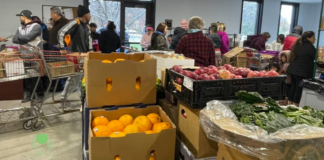There’s nothing so humbling as learning something as an adult that most people learn as children. There’s also nothing as empowering. I have come to realize that two of the hallmarks to success and contentment are learning to deal with frustration and learning to embrace humility and vulnerability. It’s admittedly something I still struggle with, but something that I am determined to instill in my children.
I’ve always wanted to learn to play piano. I wish I was one of those kids who started poking out notes on a keyboard at the age of five and was performing concertos with flourish by high school. But alas, I was not. I was a last chair flutist. Still my dream of sitting down at a piano and producing beautiful music remained. I bought a used piano when my first child turned five, signed him up for lessons, and vowed to learn myself…someday. I bought teach-yourself piano books that mostly sat untouched. I managed to play “Ode to Joy” and “Hot Cross Buns,” but that hardly counted as playing piano.

Finally, when I completed my MBA and my scheduled loosened up, I took the plunge. If I really wanted to learn how to play piano, I needed to learn how to play piano. I looked online for “adult piano lessons.” My worst nightmare would be playing a recital with a group of 3rd grades. Mostly because they would absolutely be better than me.
I found a seemingly good fit in Rhapsody Arts Center’s “Lessons for the Insanely Busy Adult.” I nervously arrived for my first lesson. I explained my bucket list desire to learn piano. The teacher invited me to play a little something to start us out. He apparently mistook me for someone who had perhaps learned piano before and was little rusty. “I don’t really know how to play … anything,” I said.
He took it in stride and started with the most basic of basics. I began to work my way through a lesson book. I am not naturally musical, so it felt like a chore for the most part, but I dutifully retired to the basement each day and worked on my assignments.
As adults we spend most of our time doing what we are best at. We choose our career and our hobbies based on our natural aptitude and settle into a level of comfort. We might do the same job for decades, gaining expert status but never venturing into new territory.
We don’t accept the same from our kids. They can’t only go to gym or math class. We force them to try out every sort of lesson, hobby, and sport. We tell them to try again and again. And yet as adults, we allow ourselves off the hook. “I’m not a good cook. I don’t know how to golf. I am not a runner.”
I know this all on an intellectual level. I know growth comes from discomfort. And yet, I found myself wrestling with frustration and vulnerability. When working on a challenging piece, I caught myself thinking This is too hard for me. Why did he assign me this? I can’t do this. I realized I sounded strikingly like my children when faced with a hard math problem or a new skill in swimming.
Eventually I would learn the passage but only if I undertook the uncomfortable process of doing it over and over and over. I would marvel at the moment when I memorized the section and my fingers moved across the keys as if they always knew how to do it. Playing it then would become comfortable, enjoyable, and…easy. So the process would begin again. A new harder piece, my frustration and discomfort. My need to remind myself that I am capable of learning it but only through awkward, uncomfortable repetition. There is no other way.
Perhaps you embrace challenge and venture out of your comfort zone regularly. I envy you. I fully admit to preferring to do what I am good at. What I can do perfectly. What won’t cause me frustration or embarrassment. I don’t want to make a mistake. But I can’t live that way and be the best parent to my children.
At a bike riding workshop recently, I observed these patterns in the children whizzing and wobbling around me. Some absorbed a few words of instruction, fell once or twice, got back up with a smile, and were happily pedaling within 15 minutes. My two youngest on the other hand whined and fought. They tried to balance and fell. “I can’t do this,” they said. “It’s too hard!” They gave up at the first sign of resistance.
“Biking is stupid anyway,” my six-year-old said as he kicked a sign. Yikes. They apparently inherited my own lack of resilience.
I shared my experiences with them on the way home from the failed bike riding attempt. I shared how I struggled to ride a bike and how I was certain I would never learn cursive. I told them how I still get frustrated when practicing piano. But I assured them if they keep trying over and over and over again they will learn.
It’s a lesson I must keep learning myself. This summer I am taking Tennis 101. I catch myself worrying about making mistakes and tempted to throw in the towel when my tenth shot goes into the net.
I’m still at most an advanced beginner at piano. And I still struggle with frustration and vulnerability. But I am proud of myself for modeling resilience for my children – even if it doesn’t come naturally. I choose to try hard things, even when I really don’t want to. As an African proverb reminds us, “Smooth seas do not make skillful sailors.”












